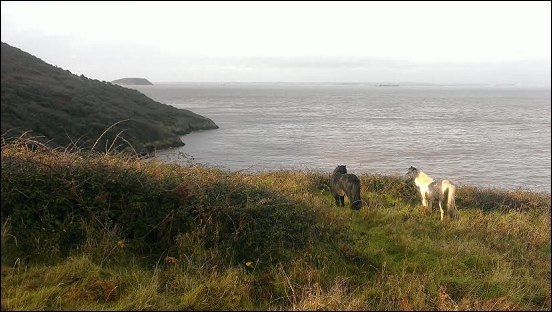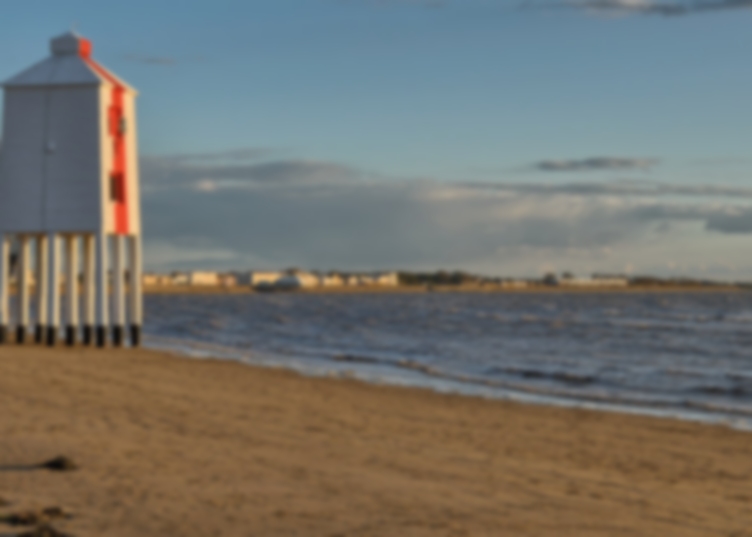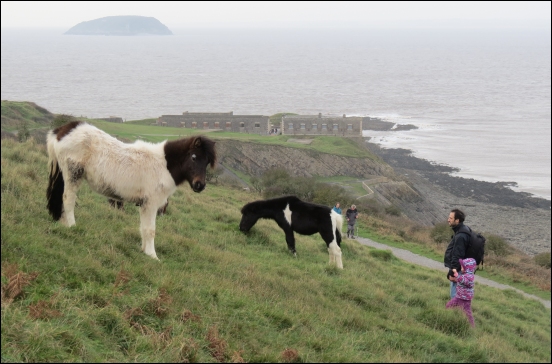The protection of a coastal peninsula managed by the National Trust near Burnham-On-Sea is being ensured for future generations thanks to the efforts of some unusual eco-warriors.
Brean Down is home to rich coastal limestone grasslands, as well as several rare plants including white rock rose, dwarf sedge and Somerset hair grass.
However, the species are particularly dependant on short turf and if the grasslands were left unmanaged, the delicate ecosystem would suffer from the encroachment of scrub such as bramble and hawthorn.
Thankfully this year, 300 sheep and 35 Dartmoor ponies have come to the rescue. The seasonal grazing they will be providing over the coming months will control the development of scrub and allow smaller herbs and coastal wild flowers to flourish. In turn, this will also invite a wider variety of insects and birds.
Area Ranger Simon Hill told Burnham-On-Sea.com: “Scrub is not all bad, a mosaic of scrub of different ages is beneficial for wildlife; young bramble is a good source of nectar and berries, while denser pockets of hawthorn provide vital shelter. However, if left unmanaged, these plants will spread, shading out important wildflower species and over time, reducing the biodiversity of the Down.”

The North Somerset Ranger team continue to manage the scrub on a rotationa basis, using a range of techniques; most commonly through the cutting and burning of material which they say is a mammoth effort.
A team of dedicated volunteers contribute over 800 hours to this task and staff will spend around £70,000 each year in a constant battle to keep the scrub at bay.
Simon added: “The National Trust team are delighted with the assistance from their four-legged helpers this year. Each year we work really hard to protect the wonderful wildlife at Brean Down. We’ve got a helping hand this year; the sheep and ponies now grazing the grasslands provide the short turf many rare wildflowers depend on.”
“Brean Down is a registered Site of Special Scientific Interest (SSSI) and a haven for birdwatchers, as well as being a sanctuary for breeding pairs of Peregrine falcons and the home of carpets of bluebells come spring. Thanks to the grazing provided this year, Brean’s conservation future looks bright.”
“The hardy herd of Dartmoor ponies have already taken up residence, perfectly adapted to the wild winter weather on the Down. The sheep are due to follow in March once they have lambed. The ponies are beautiful, but best admired from a distance. The desire is to keep them as wild animals, avoiding interaction with visitors. Attempts to feed or approach the ponies could result in them becoming tame and less effective in their conservation-grazing role.”
“Visitors to the Down are also reminded to please keep dogs under close control to avoid worrying the livestock, which can be particularly vulnerable to being chased towards the cliff edges.”
“A wander across the promontory in summer will reveal how this near unique vegetation community in Britain has an almost Mediterranean appearance, with breath-taking views across Somerset and the Bristol Channel and an abandoned Palmerston fort to discover.”











